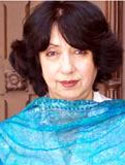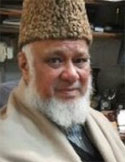
By Zeenat Shaukat Ali
Jul 09, 2015
Several Muslim organisations have questioned the logic of the Maharashtra government derecognising those madrasas which give students education only on religion without imparting formal education like teaching English, maths and science as “non schools”. The question raised by them is that such an act not only mars the freedom of religion and conscience guaranteed under Article 25 of the Constitution insofar as it applies to institutions run by a religious denomination, but also dents the independence of their educational system by the unwarranted imposition of government control.
Further, the Supreme Court of India, in a landmark judgment, while upholding constitutional validity of Right to Education Act, 2009 (RTE), declared that the institutions like madrasas, Vedic Pathshalas, etc. that predominantly provide religious instructions and do not provide formal secular education are exempted from the applicability of the Act.
Additionally, there is no clarification on the Centre’s National Madrasa Modernisation Programme. The views of the government and its detailed policy regarding madrasas must be made comprehensively clear. Madrasa is an ancient institution, which has been around for the last 1,400 years. Once a thriving institution that served as the pulsating heart of the Islamic community, it is now viewed, unfortunately, with suspicion across the world.
Initially, the elementary school for primary education was the Kuttab and for higher secondary education was the madrasa. These were adjuncts of the mosque. Their curriculum was centred upon the Quran as a textbook. With reading went writing.
Together with reading and penmanship, the students were taught Arabic grammar, narrations about the Prophets, and the elementary principles of arithmetic, rhetoric and elementary sciences. With time, philosophy, the humanities and social sciences were also included in the curriculum.
Presently, the syllabi of madrasas can be transformed by widening its scope to a broad spectrum of disciplines. A study of the natural sciences, mathematics, sociology or history can be studied with religion and Tasawwuf (spiritual dimension). In this way the product of a madrasa has several career choices from becoming an imam to an IAS officer, an engineer or a doctor of medicine or a legal practitioner.
It is important to understand that the madrasa is not a monolithic institution. Several madrasas in India are open to non-Muslims and teach secular subjects as well. In Gujarat, Maharashtra and Uttar Pradesh, among several other states, madrasas provide modern education through computers and the Internet.
The word Ilm (knowledge) and its derivations occur 805 times in the Holy Quran. It is the most used term after the word Allah. The word Albab (minds) occurs 16 times and the word aql (reason) and its derivatives occur 49 times according to Prof Darwish Mustafa, director of the National Museum in Qatar, in his article “History of Sciences in Islamic Civilisation”. This clearly indicates a call to man in the Holy Book to use reason to acquire knowledge.
The superiority accorded to humans over angels in the Quran emphasises the significance of reason and heralds the ushering in, acquisition and cultivation of knowledge, both religious and secular, modern and traditional. Muslims must restore madrasas into centres of modern knowledge and education on their own.
Zeenat Shaukat Ali is director-general of the Wisdom Foundation
-------
State Acting In A Partisan Manner

By Zafar Jung
Jul 09, 2015
Maharashtra government’s recent announcement, which derecognises educational institutions offering only religious education as “non schools” is part of the government’s effort to marginalise the minority population. The announcement is also an indication of the government’s intent to discourage the traditional education imparted in madrasas by supporting the fanatical views that madrasas are breeding grounds for anti-social elements.
Every system is designed to serve a purpose and the madrasa system was also established with a specific aim. Present-day madrasas are fully aware of the need to provide education of other subjects apart from religion and it has been the case ever since the madrasa system was introduced. For example, in the 18th century, Shah Waliullah of Delhi attempted to translate the Quran in Persian to make it easy to understand. The syllabus adopted by him included subjects like logic and philosophy. Shah Waliullah implemented Imam Al Ghazali’s thoughts and advice.
Some 4500 prominent madrasas exist in the country today, of which Deoband’s Darul Uloom and Saharanpur’s Mazahir ul Uloom are striking examples of madrasas which include subjects like English in their curriculum.
It is a misconception that students studying in madrasas are not competent in other subjects as they are able to pursue higher education at Aligarh Muslim University, Jamia Millia Islamia and Jamia Hamdard after graduating from madrasas. In spite of this, the sad part is that madrasa degrees are not recognised by Central and state universities, further alienating and underplaying their importance.
As far as the current announcement by the Maharashtra government is concerned, it is like putting a gun to the madrasas’ heads without giving them a chance to evolve. This is undemocratic and against the constitutional rights of Muslims. Under present circumstances, it is of paramount importance that the state does not act in a partisan manner. Education and knowledge will open new vistas for community development and growth and the announcement seems to target the same so that Muslim children are deprived their share of knowledge.
Currently, very few Muslim representatives are included in policy planning and if the Maharashtra government has its way, the remaining few will also disappear. If history is anything to go by, while in the pre-Independence era the civil services had nearly 25 per cent Muslims, currently the number has come down to between one and two per cent. In the pre-Independence era, many Muslims studied in madrasas and then pursued further studies. So what has changed now? Since Independence, successive governments have tried to downplay the role of the second-largest population in the country by discouraging their growth and their traditional education.
Not only the government of Maharashtra, but also the Centre should implement the recommendations of the various committees that had been set up to study the socio-economic and educational backwardness of the community. At no place have the committees recommended shutting down or de-recognition of madrasas due on account of them using traditional methods of teaching. Derecognising madrasas will further harm the prospects of the ruling party.
Zafar Jung is a former member of the National Monitoring Committee for Minorities’ Education
Source: http://www.asianage.com/debate/age-debate-maharashtra-s-withdrawal-minority-institutions-recognition-discriminatory-669




 Moderate Islamist here
Moderate Islamist here


0 comments:
Post a Comment